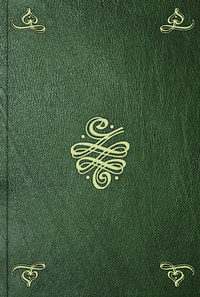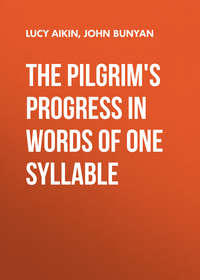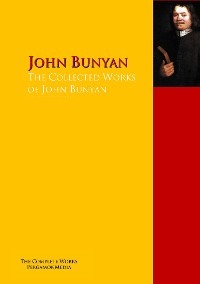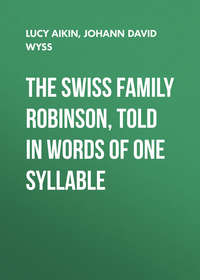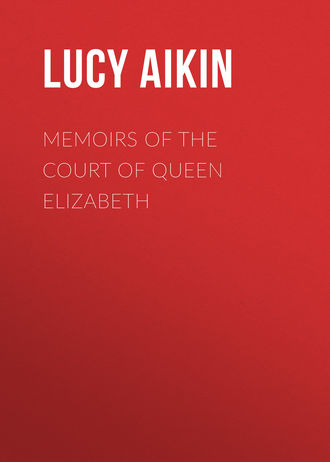 полная версия
полная версияMemoirs of the Court of Queen Elizabeth
Richard Topcliffe, a Lincolnshire gentleman employed by government to collect informations against the papists, and so much distinguished in the employment, that Topcliffizare became the cant term of the day for hunting a recusant, was at this time a follower of the court; and a letter addressed by him to the earl of Shrewsbury contains some particulars of this progress worth preserving.... "I did never see her majesty better received by two counties in one journey than Suffolk and Norfolk now; Suffolk of gentlemen and Norfolk of the meaner sort, with exceeding joy to themselves and well liking to her majesty. Great entertainment at the master of the Rolls'; greater at Kenninghall, and exceeding of all sorts at Norwich.
"The next good news, (but in account the highest) her majesty hath served God with great zeal and comfortable examples; for by her council two notorious papists, young Rookwood (the master of Euston-hall, where her majesty did lie upon Sunday now a fortnight) and one Downes, a gentleman, were both committed, the one to the town prison at Norwich, the other to the county prison there, for obstinate papistry; and seven more gentlemen of worship were committed to several houses in Norwich as prisoners....for badness of belief. This Rookwood is a papist of kind, newly crept out of his late wardship. Her majesty, by some means I know not, was lodged at his house, Euston, far unmeet for her highness, but fitter for the black guard; nevertheless, (the gentleman brought into her majesty's presence by like device) her excellent majesty gave to Rookwood ordinary thanks for his bad house, and her fair hand to kiss; after which it was braved at. But my lord chamberlain, nobly and gravely, understanding that Rookwood was excommunicated for papistry, called him before him; demanded of him how he durst to attempt her royal presence, he, unfit to accompany any Christian person? Forthwith said he was fitter for a pair of stocks; commanded him out of the court, and yet to attend her council's pleasure, and at Norwich he was committed. And, to decypher the gentleman to the full; a piece of plate being missed in the court and searched for in his hay-house, in the hayrick such an image of our lady was there found, as for greatness, for gayness, and workmanship, I did never see a match; and after a sort of country dances ended, in her majesty's sight the idol was set behind the people, who avoided. She rather seemed a beast raised upon a sudden from hell by conjuring, than the picture for whom it had been so often and so long abused. Her majesty commanded it to the fire, which in her sight by the country folks was quickly done, to her content, and unspeakable joy of every one, but some one or two who had sucked of the idol's poisoned milk.
"Shortly after, a great sort of good preachers, who had been commanded to silence for a little niceness, were licensed, and again commanded to preach; a greater and more universal joy to the counties, and the most of the court, than the disgrace of the papists; and the gentlemen of those parts, being great and hot protestants (almost before by policy discredited and disgraced), were greatly countenanced." The letter writer afterwards mentions in a splenetic style the envoy from Monsieur, one Baqueville a Norman, "with four or five of Monsieur's youths," who attended the queen and were "well entertained and regarded." After them, he says, came M. Rambouillet from the French king, brother of the cardinal, who had not long before written vilely against the queen, and whose entertainment, it seemed to him, was not so good as that of the others82.
The queen was about this time deprived by death of an old and faithful counsellor, in the person of sir Thomas Smith one of the principal secretaries of state. This eminent person, the author of a work "on the Commonwealth of England," still occasionally consulted, and in various ways a great benefactor to letters in his day, was one of the few who had passed at once with safety and credit through all the perils and revolutions of the three preceding reigns. His early proficiency at college obtained for Smith the patronage of Henry VIII., at whose expense he was sent to complete his studies in Italy; and he took at Padua the degree of Doctor of Laws. Resuming on his return his residence at Cambridge, he united his efforts with those of Cheke for reforming the pronunciation of the Greek language. Afterwards he furnished an example of attachment to his mother-tongue which among classical scholars has found too few imitators, by giving to the public a work on English orthography and pronunciation; objects as yet almost totally neglected by his countrymen, and respecting which, down to a much later period, no approach to system or uniformity prevailed, but, on the contrary, a vagueness, a rudeness and an ignorance disgraceful to a lettered people.
Though educated in the civil law, Smith now took deacon's orders and accepted a rectory, and the deanery of Carlisle. His principles secretly began to incline towards the reformers, and he lent such protection as he was able to those who in the latter years of Henry VIII. underwent persecution for the avowal of similar sentiments.
Protector Somerset patronized him: under his administration he was knighted notwithstanding his deacon's orders, and became the colleague of Cecil as secretary of state. On the accession of Mary he was stripped of the lucrative offices which he held, but a small pension was assigned him on condition of his remaining in the kingdom; and he contrived to pass away those days of horror in an unmolested obscurity.
He was among the first whom Mary's illustrious successor recalled to public usefulness; being summoned to take his place at her earliest privy-council. In the important measures of the beginning of the reign for the settlement of religion, he took a distinguished part: afterwards he was employed with advantage to his country in several difficult embassies; he was then appointed assistant and finally successor to Burleigh in the same high post which they had occupied together so many years before under the reign of Edward, and in this station he died at the age of sixty-three.
No statesman of the age bore a higher character than sir Thomas Smith for rectitude and benevolence, and nothing of the wiliness and craft conspicuous in most of his coadjutors is discernible in him. There was one foible of his day, however, from which he was by no means exempt: on certain points he was superstitious beyond the ordinary measure of learned credulity in the sixteenth century. Of his faith in alchemical experiments a striking instance has already occurred; he was likewise a great astrologer, and gave himself much concern in conjecturing what direful events might be portended by the appearance of a comet which became visible in the last year of his life. During a temporary retirement from court, he had also distinguished himself as a magistrate by his extraordinary diligence in the prosecution of suspected witches. But the date of these and similar delusions had not yet expired. Great alarms were excited in the country during the year 1577 by the prevalence of certain magical practices, which were supposed to strike at the life of her majesty. There were found at Islington, concealed in the house of a catholic priest who was a reputed sorcerer, three waxen images, formed to represent the queen and two of her chief counsellors; other dealings also of professors of the occult sciences were from time to time discovered. "Whether it were the effect of this magic," says Strype, who wrote in the beginning of the eighteenth century, "or proceeded from some natural cause, but the queen was in some part of this year under excessive anguish by pains of her teeth: Insomuch that she took no rest for divers nights, and endured very great torment night and day." In this extremity, a certain "outlandish" physician was consulted, who composed on the case, with much solemnity of style, a long Latin letter, in which, after observing with due humility that it was a perilous attempt in a person of his slender abilities to prescribe for a disease which had caused perplexity and diversity of opinion among the skilful and eminent physicians ordinarily employed by her majesty, he ventured however to suggest various applications as worthy of trial; finally hinting at the expediency of having recourse to extraction on the possible failure of all other means to afford relief. How this weighty matter terminated we are not here informed; but it is upon record that Aylmer bishop of London once submitted to have a tooth drawn, in order to encourage her majesty to undergo that operation; and as the promotion of the learned prelate was at this time recent, and his gratitude, it may be presumed, still lively, we may perhaps be permitted to conjecture that it was the bishop who on this occasion performed the part of exorcist.
The efforts of duke Casimir for the defence of the United Provinces had hitherto proved eminently unfortunate; and in the autumn of 1578 he judged it necessary to come over to England to apologize in person to Elizabeth for the ill success of his arms, and to make arrangements for the future.
He was very honorably received by her majesty, who recollected perhaps with some little complacency that he had formerly been her suitor. Justings, tilts, and runnings at the ring were exhibited for his entertainment, and he was engaged in hunting-parties, in which he greatly delighted. Leicester loaded him with presents; the earl of Pembroke also complimented him with a valuable jewel. The earl of Huntingdon, a nobleman whose religious zeal, which had rendered him the peculiar patron of the puritan divines, interested him also in the cause of Holland, escorted him on his return as far as Gravesend; and sir Henry Sidney attended him to Dover. The queen willingly bestowed on her princely guest the cheap distinction of the garter; but her parting present of two golden cups, worth three hundred pounds a-piece, was extorted from her, after much murmuring and long reluctance, by the urgency of Walsingham, who was anxious, with the rest of his party, that towards this champion of the protestant cause, though unfortunate, no mark of respect should be omitted.
The Spanish and French ambassadors repined at the favors heaped on Casimir; but in the mean time the French faction was not inactive. The earl of Sussex, whose generally sound judgement seems to have been warped in this instance by his habitual contrariety to Leicester, wrote in August 1578 a long letter to the queen, in which, after stating the arguments for and against the French match, he summed up pretty decidedly in its favor. What was of more avail, Monsieur sent over to plead his cause an agent named Simier, a person of great dexterity, who well knew how to ingratiate himself by a thousand amusing arts; by a sprightly style of conversation peculiarly suited to the taste of the queen; and by that ingenious flattery, the talent of his nation, which is seldom entirely thrown away even upon the sternest and most impenetrable natures. Elizabeth could not summon resolution to dismiss abruptly a suit which was so agreeably urged, and in February 1579 lord Talbot sends the following information to his father: "Her majesty continueth her very good usage of M. Simier and all his company, and he hath conference with her three or four times a week, and she is the best disposed and pleasantest when she talketh with him (as by her gestures appeareth) that is possible." He adds, "The opinion of Monsieur's coming still holdeth, and yet it is secretly bruited that he cannot take up so much money as he would on such a sudden, and therefore will not come so soon83."
The influence of Simier over the queen became on a sudden so potent, that Leicester and his party reported, and perhaps believed, that he had employed philters and other unlawful means to inspire her with love for his master. Simier on his side amply retaliated these hostilities by carrying to her majesty the first tidings of the secret marriage of her favorite with the countess of Essex;—a fact which none of her courtiers had found courage to communicate to her, though it must have been by this time widely known, as sir Francis Knowles, the countess's father, had insisted, for the sake of his daughter's reputation, that the celebration of the nuptials should take place in presence of a considerable number of witnesses.
The rage of the queen on this disclosure transported her beyond all the bounds of justice, reason, and decorum. It has been already remarked that she was habitually, or systematically, an open enemy to matrimony in general; and the higher any persons stood in her good graces and the more intimate their access to her, the greater was her resentment at detecting in them any aspirations after this state; because a kind of jealousy was in these cases superadded to her malignity, and it offended her pride that those who were honored with her favor should find themselves at leisure to covet another kind of happiness of which she was not the dispenser. But that Leicester, the dearest of her friends, the first of her favorites, after all the devotedness to her charms which he had so long professed, and which she had requited by a preference so marked and benefits so signal,—that he,—her opinion unconsulted, her sanction unimplored, should have formed,—and with her own near relation,—this indissoluble tie, and having formed it should have attempted to conceal the fact from her when known to so many others,—appeared to her the acme of ingratitude, perfidy, and insult. She felt the injury like a weak disappointed woman, she resented it like a queen and a Tudor.
She instantly ordered Leicester into confinement in a small fort then standing in Greenwich park, and she threw out the menace, nay actually entertained the design, of sending him to the Tower. But the lofty and honorable mind of the earl of Sussex revolted against proceedings so violent, so lawless, and so disgraceful in every point of view to his royal kinswoman. He plainly represented to her, that it was contrary to all right and all decorum that any man should be punished for lawful matrimony, which was held in honor by all; and his known hostility to the favorite giving weight to his remonstrance, the queen curbed her anger, gave up all thoughts of the Tower, and soon restored the earl to liberty. In no long time afterwards, he was readmitted to her presence; and so necessary had he made himself to her majesty, or so powerful in the state, that she found it expedient insensibly to restore him to the same place of trust and intimacy as before; though it is probable that he never entirely regained her affections; and his countess, for whom indeed she had never entertained any affection, remained the avowed object of her utter antipathy even after the death of Leicester, and in spite of all the intercessions in her behalf with which her son Essex, in the meridian of his favor, never ceased to importune his sovereign.
The quarrel of Leicester against Simier proceeded to such extremity after this affair, that the latter believed his life in danger from his attempts. It was even said that the earl had actually hired one of the queen's guard to assassinate the envoy, and that the design had only miscarried by chance. However this might be, her majesty, on account of the spirit of enmity displayed towards him by the people, to whom the idea of the French match was ever odious, found it necessary, by a proclamation, to take Simier under her special protection. It was about this time that as the queen was taking the air on the Thames, attended by this Frenchman and by several of her courtiers, a shot was fired into her barge, by which one of the rowers was severely wounded. Some supposed that it was aimed at Simier, others at the queen herself; but the last opinion was immediately silenced by the wise and gracious declaration of her majesty, "that she would believe nothing of her subjects that parents would not believe of their children."
After due inquiry the shot was found to have been accidental, and the person who had been the cause of the mischief, though condemned to death, was pardoned. Such at least is the account of the affair transmitted to us by contemporary writers; but it still remains a mystery how the man came to be capitally condemned if innocent, or to be pardoned if guilty.
Leicester, from all these circumstances, had incurred so much obloquy at court, and found himself so coldly treated by the queen herself, that in a letter to Burleigh he offered, or threatened, to banish himself; well knowing, perhaps, that the proposal would not be accepted; while the French prince, now created duke of Anjou, adroitly seized the moment of the earl's disgrace to try the effect of personal solicitations on the heart of Elizabeth. He arrived quite unexpectedly, and almost without attendants, at the gate of her palace at Greenwich; experienced a very gracious reception; and after several long conferences with the queen alone, of which the particulars never transpired, took his leave and returned home, re-committing his cause to the skilful management of his own agent, and the discussion of his brother's ambassadors.
Long and frequent meetings of the privy-council were now held, by command of her majesty, for the discussion of the question of marriage; from the minutes of which some interesting details may be recovered.
The earl of Sussex was still, as ever, strongly in favor of the match; and chiefly, as it appears, from an apprehension that France and Spain might otherwise join to dethrone the queen and set up another in her place. Lord Hunsdon was on the same side, as was also the lord-admiral (the earl of Lincoln), but less warmly. Burleigh labored to find arguments in support of the measure, but evidently against his judgement and to please the queen. Leicester openly professed to have changed his opinion, "for her majesty was to be followed." Sir Walter Mildmay reasoned freely and forcibly against the measure, on the ground of the too advanced age of the queen, and the religion, the previous public conduct and the family connexions of Anjou. Sir Ralph Sadler subscribed to most of the objections of Mildmay, and brought forward additional ones. Sir Henry Sidney approved all these, and subjoined, "that the marriage could not be made good by all the counsel between England and Rome; a mass might not be suffered in the court;" meaning, probably, that the marriage rite could not by any expedient be accommodated to the consciences of both parties and the law of England.
On the whole, with the single exception perhaps of the earl of Sussex, those counsellors who pronounced in favor of the marriage in this debate, did so, almost avowedly, in compliance with the wishes of the queen, whose inclination to the alliance had become very evident since the visit of her youthful suitor; while such as opposed it were moved by strong and earnest convictions of the gross impropriety and thorough unsuitableness of the match, with respect to Elizabeth herself, and the dreadful evils which it was likely to entail on the nation. How entirely the real sentiments of this body were adverse to the step, became further evident when the council, instead of immediately obeying her majesty's command, that they should come to a formal decision on the question and acquaint her with the same, hesitated, temporized, assured her of their readiness to be entirely guided on a matter so personal to herself, by her feelings and wishes; requested to be further informed what these might be, and inquired whether, under all the circumstances, she was desirous of their coming to a full determination. "This message was reported to her majesty in the forenoon," (October 7th 1579) "and she allowed very well of the dutiful offer of their services. Nevertheless, she uttered many speeches, and that not without shedding of many tears, that she should find in her councillors, by their long disputations, any disposition to make it doubtful, whether there could be any more surety for her and her realm than to have her marry and have a child of her own body to inherit, and so to continue the line of king Henry the eighth; and she said she condemned herself of simplicity in committing this matter to be argued by them, for that she thought, to have rather had an universal request made to her to proceed in this marriage, than to have made doubt of it; and being much troubled herewith she requested" the bearers of this message "to forbear her till the afternoon."
On their return, she repeated her former expressions of displeasure; then endeavoured at some length to refute the objections brought against the match; and finally, her "great misliking" of all opposition, and her earnest desire for the marriage, being reported to her faithful council, they agreed, after long consultations, to offer her their services in furtherance of it, should such really be her pleasure84.
But the country possessed some men less obsequious than privy-councillors, who could not endure to stand by in silence and behold the great public interests here at stake surrendered in slavish deference to the fond fancy of a romantic woman, caught by the image of a passion which she was no longer of an age to inspire, and which she ought to have felt it an indecorum to entertain. Of this number, to his immortal honor, was Philip Sidney. This young gentleman bore at the time the courtly office of cup-bearer to the queen, and was looking for further advancement at her hands; and as on a former occasion he had not scrupled to administer some food to her preposterous desire of personal admiration, Elizabeth, when she applied to him for his opinion on her marriage, assuredly did so in the hope and expectation of hearing from him something more graceful to her ears than the language of truth and wisdom. But Sidney had beheld with his own eyes the horrors of the Paris massacre; he had imbibed with all the eagerness of a youthful and generous mind the principles of his friend the excellent Hubert Languet, one of the ablest advocates of the protestant cause; and he had since, on his embassy to Germany and Holland, enjoyed the favor and contemplated the illustrious virtues of William prince of Orange its heroic champion.
To this sacred cause the purposed marriage must prove, as he well knew, deeply injurious, and to the reputation of his sovereign fatal:—this was enough to decide his judgement and his conduct; and magnanimously disdaining the suggestions of a selfish and servile policy, he replied to the demand of her majesty, by a letter of dissuasion, almost of remonstrance, at once the most eloquent and the most courageous piece of that nature which the age can boast. Every important view of the subject is comprised in this letter, which is long, but at the same time so condensed in style, and so skilfully compacted as to matter, that it well deserves to be read entire, and must lose materially either by abridgement or omission. Yet it may be permitted to detach from political reasonings, foreign to the nature and object of this work, a few sentences referring more immediately to the personal character of Anjou, and displaying in a strong light the enormous unfitness of the connexion; and also the animated and affectionate conclusion by which the writer seems desirous to atone for the enunciation of so many unwelcome truths.
"These," speaking of her majesty's protestant subjects… "These, how will their hearts be galled, if not aliened, when they shall see you take a husband, a Frenchman and a papist, in whom (howsoever fine wits may find further dealings or painted excuses) the very common people well know this, that he is the son of a Jezabel of our age; that his brother made oblation of his own sister's marriage, the easier to make massacres of our brethren in belief: That he himself, contrary to his promise and all gratefulness, having his liberty and principal estate by the Hugonots' means, did sack La Charité, and utterly spoil them with fire and sword! This, I say, even at first sight, gives occasion to all truly religious to abhor such a master, and consequently to diminish much of the hopeful love they have long held to you."
"Now the agent party, which is Monsieur. Whether he be not apt to work on the disadvantage of your estate, he is to be judged by his will and power: his will to be as full of light ambition as is possible, besides the French disposition and his own education, his inconstant temper against his brother, his thrusting himself into the Low Country matters, his sometimes seeking the king of Spain's daughter, sometimes your majesty, are evident testimonies of his being carried away with every wind of hope; taught to love greatness any way gotten; and having for the motioners and ministers of the mind only such young men as have showed they think evil contentment a ground of any rebellion; who have seen no commonwealth but in faction, and divers of which have defiled their hands in odious murders. With such fancies and favorites what is to be hoped for? or that he will contain himself within the limits of your conditions?"


